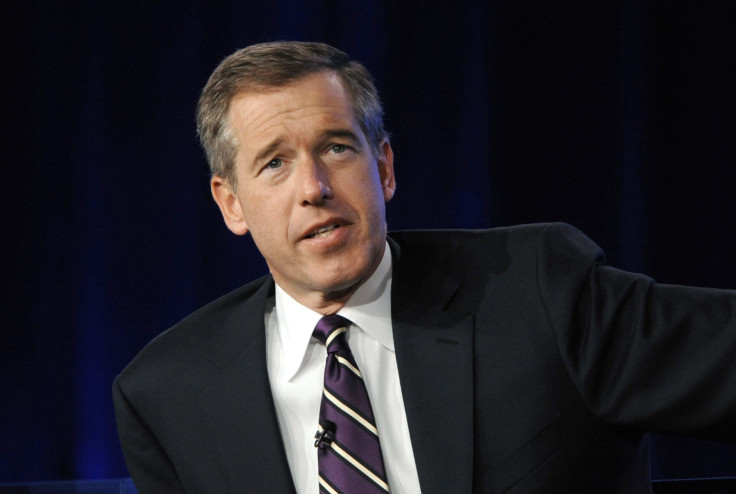NBC News Suspends Brian Williams, The Risk For Ratings, Revenue

NBC News moved decisively Tuesday and gave "NBC Nightly News" anchor Brian Williams a six-month suspension without pay as it attempts to unravel exaggerations in accounts of his experiences in the field covering the Iraq war and Hurricane Katrina. The suspension, notable for its length, is an attempt to begin the rebuilding process for an organization hit hard by revelations that Williams, its most public face, had been playing fast and loose with the facts in telling his own story of the events.
"By his actions, Brian has jeopardized the trust millions of Americans put in NBC News," wrote Steve Burke, CEO of NBCUniversal. "His actions are inexcusable and this suspension is severe and appropriate."
Underlying the suspension is a secondary message as powerful: NBC News is bigger than any single personality behind the desk. "NBC News is bigger than this moment," wrote NBC News President Deborah Turness in her memo to staff.
The length of the suspension puts Williams' eventual return in doubt. The network had just renewed his contract for five years at $10 million a year, a huge commitment to an anchor who became, after the death of ABC's Peter Jennings in 2005, the most senior anchor of the big three network evening newscasts.
It also jeopardizes the "Nightly News" position at the top of the ratings heap, along with millions of dollars in ad revenue. NBC News' "Today" has already lost its lead to ABC's "Good Morning America" in the morning; now it risks losing in the evening as well. As anyone who's strived at the one time "Tiffany" network CBS News knows, once you drop out of No. 1, it is a very long, arduous process to get back. With network news audiences in decline, there are simply fewer viewers to fight for each year.
While the suspension sorts out the immediate future for Williams, NBC News faces bigger decisions ahead. Longtime weekend and MSNBC anchor Lester Holt is the temporary solution behind the anchor's desk, but NBC News will have to decide whether to bring back Williams and in what capacity. And if not, it has to decide what to do long-term for a newscast that still pulls in more than 9 million viewers a night.
Both CBS and ABC have changed anchors several times in the years since Williams replaced Tom Brokaw in 2004, but no move -- not Diane Sawyer at ABC nor Katie Couric at CBS -- was able to dent Williams' dominance.
NBCUniversal parent Comcast is attempting to gain regulatory approval for its $45 billion takeover of Time Warner Cable. The Williams scandal, which has dominated the news cycle for a few weeks, is an unwelcome distraction and buys time as that process moves into a decisive stage.
In her memo, Turness said Williams misrepresented the facts in describing his 2003 reporting trip to Iraq. She also said "we have concerns" about the way he described experiences in the field outside the anchor's chair. "This is wrong and completely inappropriate for someone in Brian's position," she wrote.
While Williams' transgressions, caught on video over the years and now lampooned by the likes of Jon Stewart, have provided ample fodder for debate, she said the decision to suspend Williams was made by three people: Turness, Burke and NBC News Chairman Patricia Fili-Krushel.
In the note, Turness explained why the network did not fire Williams outright. "We felt it would have been wrong to disregard the good work Brian has done and the special relationship he has forged with our viewers over 22 years," she wrote. "Millions of Americans have turned to him every day, and he has been an important and well-respected part of our organization."
CEO Burke added: "I know Brian loves his country, NBC News and his colleagues. He deserves a second chance and we are rooting for him. Brian has shared his deep remorse with me and he is committed to winning back everyone’s trust.”
© Copyright IBTimes 2025. All rights reserved.






















